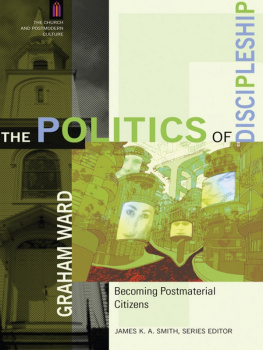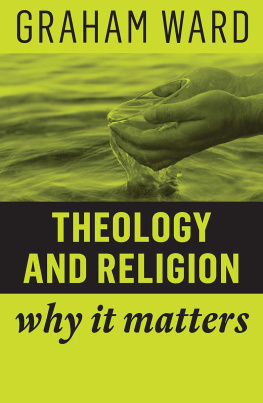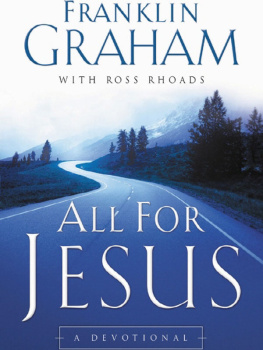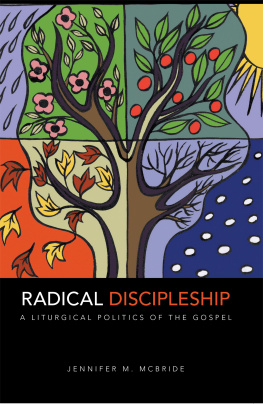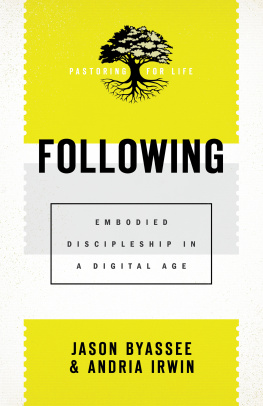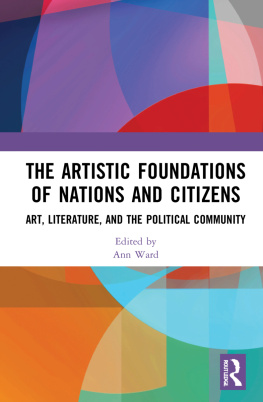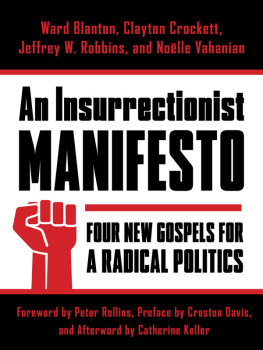Graham Ward - Politics of Discipleship, The: Becoming Postmaterial Citizens
Here you can read online Graham Ward - Politics of Discipleship, The: Becoming Postmaterial Citizens full text of the book (entire story) in english for free. Download pdf and epub, get meaning, cover and reviews about this ebook. year: 2009, publisher: Baker Academic, genre: Politics. Description of the work, (preface) as well as reviews are available. Best literature library LitArk.com created for fans of good reading and offers a wide selection of genres:
Romance novel
Science fiction
Adventure
Detective
Science
History
Home and family
Prose
Art
Politics
Computer
Non-fiction
Religion
Business
Children
Humor
Choose a favorite category and find really read worthwhile books. Enjoy immersion in the world of imagination, feel the emotions of the characters or learn something new for yourself, make an fascinating discovery.
- Book:Politics of Discipleship, The: Becoming Postmaterial Citizens
- Author:
- Publisher:Baker Academic
- Genre:
- Year:2009
- Rating:5 / 5
- Favourites:Add to favourites
- Your mark:
- 100
- 1
- 2
- 3
- 4
- 5
Politics of Discipleship, The: Becoming Postmaterial Citizens: summary, description and annotation
We offer to read an annotation, description, summary or preface (depends on what the author of the book "Politics of Discipleship, The: Becoming Postmaterial Citizens" wrote himself). If you haven't found the necessary information about the book — write in the comments, we will try to find it.
Politics of Discipleship, The: Becoming Postmaterial Citizens — read online for free the complete book (whole text) full work
Below is the text of the book, divided by pages. System saving the place of the last page read, allows you to conveniently read the book "Politics of Discipleship, The: Becoming Postmaterial Citizens" online for free, without having to search again every time where you left off. Put a bookmark, and you can go to the page where you finished reading at any time.
Font size:
Interval:
Bookmark:
For Rachel and Yazeed
and
in picem memoriam
Marcella Althaus-Reid and Paul Fletcher
Since the theology of the world is... a theology of emerging political and social order, this theology of the world must be a political theology.
Johannes B. Metz
THE POLITICS OF
DISCIPLESHIP
Contents
C urrent discussions in the churchfrom emergent postmodern congregations to mainline missional congregations are increasingly grappling with philosophical and theoretical questions related to postmodernity. In fact, it could be argued that developments in postmodern theory (especially questions of post-foundationalist epistemologies) have contributed to the breakdown of former barriers between evangelical, mainline, and Catholic faith communities. Postliberalisma related effect of postmodernismhas engendered a new, confessional ecumenism wherein we find nondenominational evangelical congregations, mainline Protestant churches, and Catholic parishes all wrestling with the challenges of postmodernism and drawing on the culture of postmodernity as an opportunity for rethinking the shape of our churches.
This context presents an exciting opportunity for contemporary philosophy and critical theory to hit the ground, so to speak, by allowing high-level work in postmodern theory to serve the churchs practiceincluding all the kinds of congregations and communions noted above. The goal of this series is to bring together high-profile theorists in continental philosophy and contemporary theology to write for a broad, nonspecialist audience interested in the impact of postmodern theory on the faith and practice of the church. Each book in the series will, from different angles and with different questions, undertake to answer questions such as What does postmodern theory have to say about the shape of the church? How should concrete, in-the-pew and on-the-ground religious practices be impacted by postmodernism? What should the church look like in postmodernity? What has Paris to do with Jerusalem?
The series is ecumenical not only with respect to its ecclesial destinations but also with respect to the facets of continental philosophy and theory that are represented. A wide variety of theoretical commitments will be included, ranging from deconstruction to Radical Orthodoxy, including voices from Badiou to iek and the usual suspects in between (Nietzsche, Heidegger, Levinas, Derrida, Foucault, Irigaray, Rorty, and others). Insofar as postmodernism occasions a retrieval of ancient sources, these contemporary sources will be brought into dialogue with Augustine, Irenaeus, Aquinas, and other resources. Drawing on the wisdom of established scholars in the field, the series will provide accessible introductions to postmodern thought with the specific aim of exploring its impact on ecclesial practice. The books are offered, one might say, as French lessons for the church.
JAMES K. A. SMITH
W hat do we do now? This might be the first question of discipleship. It is the question asked by the disciples at the foot of the cross: The Messiah is dead. What do we do now? It is the question asked by the same disciples after the resurrection: Hes alive! What do we do now? And it is the question asked by these same Jesus followers after the ascension: The King has left us. What do we do now?
If this is the first question of discipleship, it is also a perennial question of discipleship. If, as Kierkegaard suggests, every generation is contemporaneous with the Messiahif every follower is a contemporary of the Teacherthen this question will be constantly asked anew. But in order to answer the question, we need to understand this now; we need to grapple with the present. I have long appreciated the work of Graham Ward because I have always sensed that he is asking this basic question: What time is it? Theology, for Ward, is not an arcane game consumed with systematizing timeless truths; rather, it is the concrete and contemporary task of trying to faithfully discern the times.
This is why the best theology (indeed, just the sort of theology Ward undertakes in this book) will be a kind of ethnography a thick description of our present, attentive to the layers and the complexity of those institutions and practices that constitute our globalized world. The Politics of Discipleship is concerned with postmodernity, not as a matter of epistemological debates about foundationalism, but rather in terms of the phenomena we regularly encounter on CNN: the crisis of democracy, the effects of globalization, the resurgence of religion in global politics, the global expansion of materialism and consumerism, and more. In the face of these shifting realities, we find ourselves asking the disciples question: What do we do now? Wards theology of thick description is as attentive to the world as it is to the church. Indeed, hes out to complicate the distinction. But The Politics ofDiscipleship also offers an unabashedly theological reading of our present, asking What time is it? in order to help us more wisely ask, What do we do now?
However, Ward reproves those who might be looking for easy direction: My account of Christian political discipleship, he cautions, will not inform you how Jesus wants you to vote.... I am not going to tell you that Jesus loves democracy, or that Jesus and Che Guevara shared the same political vision, or that the Christian gospel advocates the political need for hierarchy and dictatorship (262). You will not find here Seven Easy Steps to Political Discipleship or any other formula coined for the fundraising brochures of a Christian Political Action Committee. This is not a manifesto for either the Religious Right or the Religious Left (even though he clearly advocates a Christian socialism). Instead, what Ward offers is an ecclesiology: an account of the body of Christ as a body politic.
So rather than remaining fixated on issues of knowledge or epistemology, Wards postmodern ecclesiology is, perhaps surprisingly, a matter of metaphysics. I say surprisingly only because the postmodern has long been associated with whats been called the end of metaphysics. In contrast to the clunky, solid stabilities of modernity and the metaphysical stuff of medieval scholasticism, postmodernism has trafficked in flow and flux. Postmodernity has been identified with the surface and the simulacrum, the fluid and flashy, the virtual as opposed to the real. Thus all that is solid melts into thin air, and metaphysics evaporates with it. Postmodernity, on this account, spells the end of metaphysics and the advent of the virtual.
But this melting of solidity was precisely what Marx suggested was the outcome of capitalism, and its hard to imagine anything more modern than capitalism. So in a strange way, the postmodern allergy to metaphysics betrays its very modern provenance, which is why Frederic Jameson could famously describe postmodernism as the cultural logic of late capitalism. Ward notes the same: there is no doubt, he concludes, that the favored language of postmodernityflux, flows, [etc.]and the move toward soft understandings of the subject as agent and of power as diffuse are at best not going to be effective resistors to laissez-faire capitalism and at worst help foster a culture in which such capitalism can have its greatest impact (75). In other words, much of postmodernism turns out to be hypermodernism, providing fuel for late (globalized) capitalism. Thus the irony: the materialism of consumer capitalism actually eviscerates the material, thins it out to nothingness. So the end of metaphysics is everything capitalism could have hoped for.
This is why Ward sees an imperative to redeem metaphysics. A properly postmodern theology, he argues, will spell the end of the end of metaphysics. And here Wards theological ethnography gives us new eyes to see our present. For in the midst of our disenchanted, commodified world, we find ciphers of transcendence and the desire for enchantment. In analyses of Harry Potter, the
Next pageFont size:
Interval:
Bookmark:
Similar books «Politics of Discipleship, The: Becoming Postmaterial Citizens»
Look at similar books to Politics of Discipleship, The: Becoming Postmaterial Citizens. We have selected literature similar in name and meaning in the hope of providing readers with more options to find new, interesting, not yet read works.
Discussion, reviews of the book Politics of Discipleship, The: Becoming Postmaterial Citizens and just readers' own opinions. Leave your comments, write what you think about the work, its meaning or the main characters. Specify what exactly you liked and what you didn't like, and why you think so.

